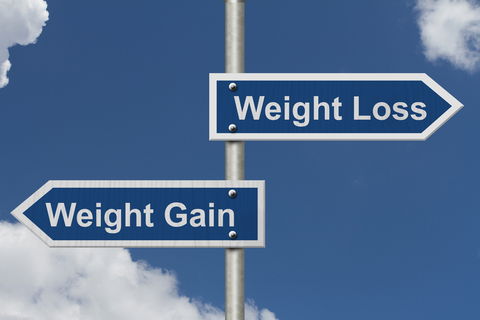Imbalances Can Lead to Weight Gain or Loss

Part 1 of a two part series on Hormonal Imbalance and Weight Loss
Hormonal changes can lead to nutritional imbalances that are directly related to weight gain. Around age 45, your metabolism begins to burn fewer calories a day, which can translate into a weight gain of up to a dozen pounds per year. If your metabolism slows due to hormonal changes, the impact to your body chemistry will determine how your body manages your weight. As you age, changes naturally occur in the way that your body produces and uses specific hormones.
Oestrogen is the primary female sex hormone
Oestrogen (or estrogen) is the major female sex hormone responsible for the development and regulation of the female body and reproductive system. When you have too much estrogen compared to progesterone, the estrogen dominance causes a number of negative symptoms, such as weight loss resistance that makes losing weight nearly impossible. Studies have shown that chronically low estrogen levels are linked to mood swings, bone loss, and a host of other bodily functions.
DHEA supports estrogen and testosterone production
Although medical researchers don't know everything DHEA does, scientists do know that it functions as a precursor that is converted by the body into a hormone. DHEA is a hormone that supports production of testosterone and estrogen. Your body chooses how it is going to process extra calories and store excess fat. Although the metabolic process depends upon the interactions of enzymes, hormones and cell receptors, researchers believe DHEA probably reduces abdominal fat. People suffering with metabolic syndrome like obesity, high cholesterol, high blood pressure and diabetes tend to test with lower levels of DHEA when compared to adults of a healthy weight. Scientists also associate low levels of the hormone with inflammatory autoimmune disorders like lupus and arthritis.
Both men and women produce testosterone
As a steroidal hormone produced by both men and women, women only produce about one-tenth the amount of testosterone as men do. Man or woman, if your hormone levels are normal, therapeutic options are not needed. Obesity can impair the production of testosterone making it easier to store fat, which can contribute to insulin resistance as glucose is deposited directly as fat stores. Unfortunately for crash dieters, starving yourself thin creates feelings of stress and anxiousness, which results in an increase of production of cortisol hormone and lower levels of testosterone. So, don't let dieting drive you crazy.
Saliva testing reveals undetected imbalances
Testing hormones in saliva can help to reveal undetected hormonal unbalances that can impact your weight gain and weight loss. The versatility of saliva testing makes it a better measure for evaluating un-supplemented hormone status. MRC hormone testing can be used to evaluate steroid hormones, such as estradiol, estrone, estriol, progesterone, testosterone, DHEA and cortisol.
By submitting this form, you agree to receive marketing text messages from us at the number provided, including messages sent by autodialer. Consent is not a condition of any purchase. Message and data rates may apply. Message frequency varies. Reply HELP for help or STOP to cancel. View our Privacy Policy and Terms of Service.

